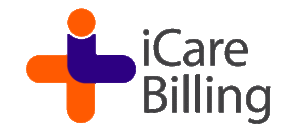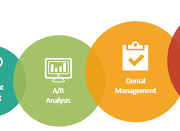Role of Medical Billing Companies in the Healthcare Landscape
In the complex and ever-evolving landscape of healthcare, Medical Billing Companies play a pivotal role in ensuring the financial health of healthcare providers. These companies specialize in handling the intricate process of medical billing and coding, streamlining operations, reducing errors, and ultimately optimizing revenue cycles for healthcare facilities. This article delves into the key functions, challenges, and benefits associated with medical billing companies.
Medical Billing Company is the process of submitting and following up on claims with health insurance companies to receive payment for services rendered by healthcare providers. This involves translating medical procedures and diagnoses into universal alphanumeric codes that facilitate accurate billing and reimbursement.
This is Medical Billing Companies, where precision meets efficiency in medical billing. As a leading provider of comprehensive revenue cycle management solutions, they specialize in optimizing financial processes for healthcare providers. The experienced team ensures accuracy, compliance, and timely reimbursement, allowing you to focus on patient care. With a commitment to transparency and personalized service, they navigate the complexities of medical billing, providing tailored solutions to enhance your practice’s financial health. Trust them to streamline your revenue cycle, reduce administrative burdens, and maximize reimbursements, ultimately contributing to the success and sustainability of your healthcare organization. Welcome to a new era of seamless Medical Billing Company with excellence.
The Functions of Medical Billing Companies:
Medical billing companies play a crucial role in the healthcare industry by managing the complex process of billing and reimbursement. Here are some key functions of a medical billing company:
Coding and Documentation:
Medical billing companies ensure accurate coding of medical procedures and diagnoses. They work closely with healthcare providers to ensure that documentation is thorough and compliant with coding standards, reducing the risk of claim denials.
Claim Submission and Follow-Up:
These companies are responsible for submitting claims to insurance providers on behalf of healthcare facilities. Timely submission is crucial, and medical billing companies employ rigorous follow-up procedures to track claims and resolve any issues that may arise during the reimbursement process.
Revenue Cycle Management:
Effective management of the revenue cycle is vital for the financial stability of healthcare providers. Medical billing companies streamline the entire process, from patient registration and insurance verification to claims submission and payment posting, ensuring a smooth flow of revenue.
Benefits of Outsourcing Medical Billing Companies:
Medical billing companies offer a range of benefits to healthcare providers, helping them navigate the complex landscape of billing and reimbursement. Here are several advantages of utilizing the services of medical billing companies:
Expertise and Specialization:
Medical billing company employ professionals with specialized knowledge and expertise in healthcare billing and coding. This specialization ensures accurate coding, reduces errors, and enhances the efficiency of the billing process.
Cost Savings:
Outsourcing medical billing can lead to significant cost savings for healthcare providers. It eliminates the need for in-house billing staff, reduces overhead costs, and minimizes expenses related to training, software, and infrastructure.
Improved Revenue Cycle Management:
Medical billing companies focus on optimizing the entire revenue cycle, from claims submission to payment posting. This comprehensive approach results in improved cash flow and faster reimbursement, positively impacting the financial health of healthcare practices.
Reduced Billing Errors:
Accuracy is paramount in medical billing. Professional billing companies employ experienced coders and billing specialists who are well-versed in the latest coding guidelines and regulations. This reduces the likelihood of billing errors, denials, and claim rejections.
Faster Reimbursement:
Medical billing companies are equipped to submit claims promptly and efficiently. Timely claim submission and follow-up on outstanding claims lead to faster reimbursement, ensuring a steady flow of revenue for healthcare providers.
Compliance with Regulations:
Staying compliant with constantly evolving healthcare regulations is a challenging task. Medical billing companies keep abreast of changes in billing and coding regulations, ensuring that healthcare providers remain in compliance with industry standards and legal requirements.
Focus on Patient Care:
Outsourcing billing functions allows healthcare providers to concentrate on their core competency—patient care. Without the administrative burden of billing and reimbursement, medical professionals can dedicate more time and resources to improving patient outcomes.
Scalability and Flexibility:
Medical billing companies can scale their services based on the needs of the healthcare provider. Whether a practice is expanding or downsizing, outsourcing offers the flexibility to adjust billing services accordingly.
Advanced Technology and Software:
Billing companies invest in state-of-the-art billing software and technology. This ensures that healthcare providers benefit from efficient and accurate billing processes, electronic claims submission, and secure data management.
Minimized Administrative Burden:
Handling billing in-house can be time-consuming and resource-intensive. Outsourcing medical billing shifts the administrative burden to experts, allowing healthcare providers to streamline their operations and reduce administrative overhead.
Enhanced Data Security:
Medical billing companies implement robust security measures to protect sensitive patient information. This includes encryption, secure data storage, and compliance with Health Insurance Portability and Accountability Act (HIPAA) standards, ensuring the confidentiality and integrity of patient data.
Customized Reporting and Analytics:
Billing companies provide detailed financial reports and analytics, offering insights into the financial performance of healthcare practices. This data-driven approach allows providers to make informed decisions and implement strategies for improvement.
Reduced Billing Backlogs:
Efficient claims processing and follow-up by billing companies help reduce billing backlogs. This results in a smoother workflow, quicker resolution of outstanding claims, and a more organized revenue cycle.
Patient Satisfaction:
Clear and transparent billing processes contribute to improved patient satisfaction. When patients receive accurate and understandable bills, it enhances their overall experience with the healthcare provider.
Cost Efficiency:
Outsourcing medical billing is often more cost-effective for healthcare providers than maintaining an in-house billing department. It reduces staffing costs, overhead expenses, and the need for continuous training on evolving billing regulations.
Expertise and Accuracy:
Medical billing companies specialize in the intricacies of coding and billing. Their expertise reduces the likelihood of errors in claims, minimizing claim denials and ensuring a higher rate of successful reimbursement.
The Future of Medical Billing Company:
The future of medical billing companies is expected to be shaped by several trends and advancements in the healthcare industry. Here are key aspects that may influence the future of medical billing:
Automation and Artificial Intelligence (AI):
The integration of automation and AI technologies is likely to play a significant role in medical billing. Automated coding, claims processing, and AI-driven analytics can enhance efficiency, reduce errors, and improve the overall accuracy of billing processes.
Blockchain Technology:
Blockchain has the potential to revolutionize data security and interoperability in healthcare. Its decentralized and secure nature could be applied to medical billing, ensuring the integrity of patient records, reducing fraud, and enhancing trust in the billing process.
Telehealth and Remote Patient Monitoring:
The increasing adoption of telehealth services and remote patient monitoring is changing the landscape of healthcare delivery. Medical billing companies will need to adapt to billing for virtual services, capturing the complexity of remote healthcare interactions and ensuring proper reimbursement.
Value-Based Care Models:
The shift toward value-based care models emphasizes outcomes and patient satisfaction. Medical billing will likely evolve to align with these models, focusing on quality metrics and patient-centered approaches rather than traditional fee-for-service billing.
Interoperability and Data Exchange:
Improved interoperability among healthcare systems and data exchange standards will impact medical billing. Seamless sharing of patient information can lead to more accurate billing and reduce the need for manual data entry.
Regulatory Changes:
Ongoing changes in healthcare regulations will continue to influence medical billing practices. Companies will need to stay abreast of regulatory updates to ensure compliance and adapt their billing processes accordingly.
Consumerization of Healthcare:
The increasing involvement of patients in their healthcare decisions and finances will shape the future of medical billing. Billing companies may need to enhance transparency, offer convenient payment options, and improve communication to meet evolving patient expectations.
Data Analytics and Predictive Modeling:
Advanced data analytics and predictive modeling can help medical billing companies identify trends, optimize revenue cycles, and proactively address potential issues. Predictive analytics may assist in preventing claim denials and improving overall financial performance.
Enhanced Security Measures:
As cybersecurity threats continue to evolve, medical billing companies will need to invest in advanced security measures to protect sensitive patient data. This includes encryption, secure storage, and measures to prevent data breaches.
Continued Outsourcing Trend:
The outsourcing of medical billing functions is likely to persist as healthcare providers seek cost-effective solutions and specialized expertise. Medical billing companies that offer efficient and adaptable services will remain valuable partners for healthcare practices.
Automation and Artificial Intelligence:
The integration of automation and artificial intelligence is expected to revolutionize medical billing processes. AI-powered tools can enhance accuracy in coding, reduce manual errors, and expedite claim processing.
Telehealth Impact:
The rise of telehealth services has altered the landscape of healthcare delivery. Medical billing companies are adapting to the challenges and opportunities presented by remote healthcare services, including billing for virtual consultations.
To Sum Up:
In conclusion, Medical Billing Companies play a critical role in the healthcare ecosystem by managing the complex and dynamic process of medical billing and coding. As the healthcare landscape continues to evolve, these companies must stay abreast of technological advancements, regulatory changes, and emerging trends to ensure the financial success of healthcare providers. Through cost-effective outsourcing, expertise in coding, and a commitment to streamlined revenue cycles, medical billing companies contribute significantly to the efficient functioning of the healthcare industry.
Moreover, the future of Medical Billing Company is shaped by technological innovation, regulatory dynamics, and evolving healthcare models. Automation, AI, blockchain, and a focus on patient-centric care are key trends influencing the industry. Adapting to telehealth, emphasizing data security, and navigating changing regulations will be crucial. As the landscape continues to evolve, Medical Billing Companies that embrace these trends, prioritize efficiency, and deliver value through accurate and transparent billing processes will play a vital role in supporting the financial health of healthcare providers and ensuring the seamless integration of emerging technologies in the ever-changing healthcare ecosystem.








